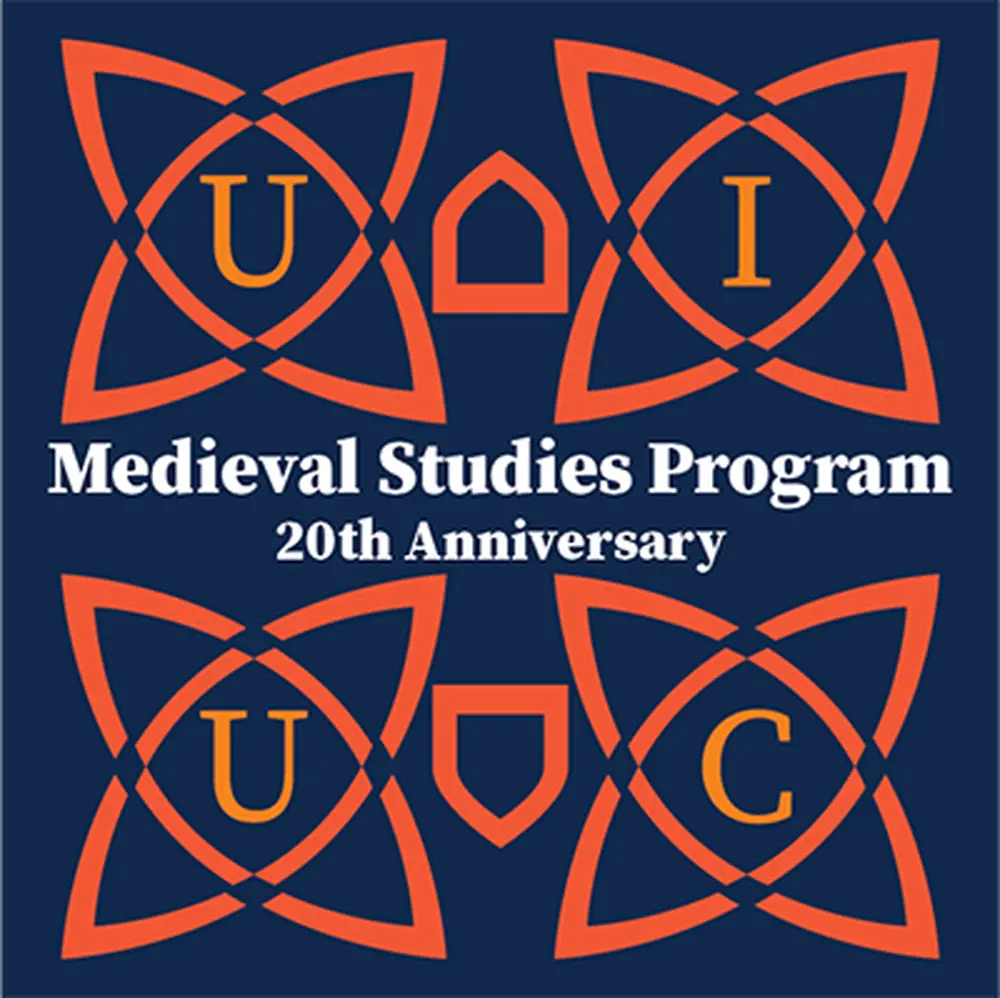
On April 8th, 2022, members and guests of the University of Illinois Urbana-Champaign Program in Medieval Studies gathered in the Architecture Building to celebrate the 20th anniversary of the program. The event was attended by current and past students, faculty members, and other friends of the program.
The evening began with opening remarks from the Associate Dean of LAS Dr. Clare Haru Crowston and current Director of the Program in Medieval Studies Dr. Renée R. Trilling.
After the opening remarks, the attendees wandered around the hall to hear about current student research projects. Students created posters and PowerPoints to display their current projects. (If you’d like to explore an online version of these presentations, please follow this link: https://uofi.app.box.com/s/52iw242x9vx76d96kb9kmpomra8ej033)
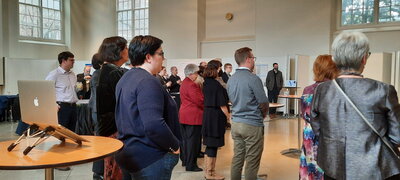
The research fair did an excellent job of highlighting the wide variety of scholarship that current students from the Program of Medieval Studies are working on. From Hannah Majewski’s work on falconry and sparrowhawks in medieval courtly romance, which they are supplementing with knowledge they gain in the field as an apprentice falconer, to Tristan Navarro’s research on medieval liturgical music fragments being used in book binding, which he discovered through his work in the Rare Book and Manuscript Library at the University of Illinois, the fair demonstrated the way students are engaging with new and exciting topics of medieval scholarship.
The research fair was an exciting opportunity for students and faculty alike. As Chloe Parrella, a 4th year in the program, said, “I enjoyed chatting with faculty and emeriti and getting to see the work that my peers in other departments are doing. We have such a lovely community here at UIUC and I am so glad that I was able to present at and attend this event.” Alongside the work of current graduate students was a slideshow highlighting publications from faculty and alumni of the program.
While perusing the research fair, attendees also enjoyed light refreshments and appetizers along with music from the group Scholasticum musicum, which is comprised of Kelli Anne McQueen, Kathleen Lacey McGowan, and Dr. Megan Eagan-Jones. Guests were also encouraged to peruse the pamphlet The Program in Medieval Studies: Our First Two Decades written by Professor Charles D. Wright, which accompanied the program for the evening.
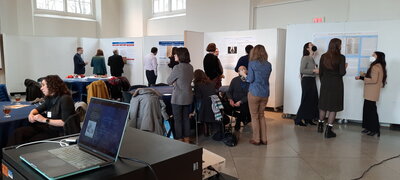
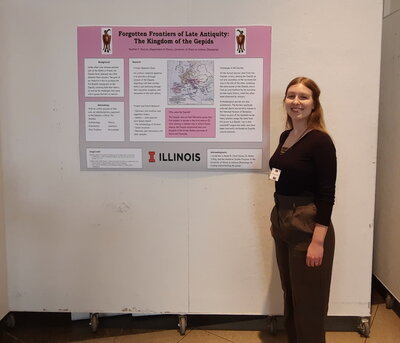
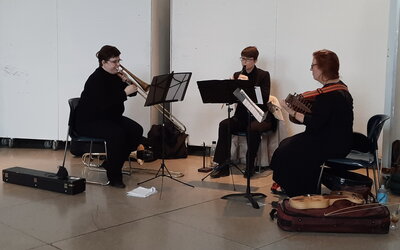
After the research fair, attendees moved to a separate room for a round table with past directors of the program. The round table was moderated by current Director Renée Trilling and featured four past directors of the program: Stephen Jaeger, Edward William and Jane Marr Gutgsell Professor Emeritus of Germanic Languages & Literatures; Anne D. Hedeman, Judith Harris Murphy Distinguished Professor of Art History, University of Kansas; Charles D. Wright, Professor Emeritus of English; and Eleonora Stoppino, Associate Professor of Italian.
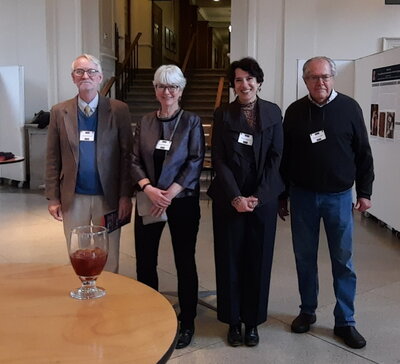
The panel discussed a multitude of topics, including the founding of the program, the interdisciplinary nature of medieval studies, stories of securing funding, and, perhaps most importantly, the turn towards a global medieval studies program. Carol Symes joined in the conversation to discuss the founding of the academic journal The Medieval Globe, which was a product of that decision to reconceptualize how we define the medieval period as a department. Dr. Wright chimed in about how important he thought the decision was, emphasizing the way it expanded his own perspective on the medieval and introduced him to a wealth of new literature. He specifically noted the joy he found in reading The Confessions of Lady Nijō, a medieval Japanese text. Overall, the panel was a wonderful mix of exploring the past, present, and future of the Program in Medieval Studies.
Afterwards, the group returned to the research fair hall to enjoy a three-course meal and drinks before departing for the evening. The hall buzzed with conversation all throughout the meal, as old friends and new acquaintances chatted happily.
The evening was also marked by another, less official celebration—a return to in person Medieval Studies events. For many current graduate students, the celebration marked their first ever in person Program in Medieval Studies event. Jamie Keener, a 3rd year in the program, said “After lockdown, the gala was a much-needed time to catch up with friends in the program and to meet people I hadn’t yet had the chance to.” Hannah Majewski, a 2nd year in the program echoed the sentiment, saying that “after almost two years of separation due to the pandemic I finally felt like I was truly part of a larger community of medieval scholars at UIUC.” The opportunity for students to meet and network with a variety of faculty members, both current and retired, was an invaluable experience. As Keener concluded, “I’m looking forward to more Medieval Studies events in the future!”